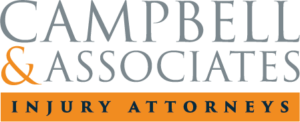Call Today
704-333-0885
Punitive Damages in North Carolina Personal Injury Claims (Part 2)
Part 1 of this article discussed what a plaintiff needs to prove to pursue punitive damages under North Carolina law. This part of the article will discuss the types of acts that have been deemed egregious under North Carolina law and explore how punitive damages are presented at trial and the limitations on them.
Most of the cases I deal with on a daily basis that involve punitive damages are a result of auto accidents. North Carolina has recognized the following acts to be within the realm of egregious or aggravated conduct:
- intoxication
- excessive speeding
- some type of racing competition
However, this list could be expanded if the facts of the case warrant it. I had a case involving a defendant that was narcoleptic. He had been in several accidents before the accident with my client due to falling asleep at the wheel. He had been instructed by his doctors not to drive. Despite this, he continued to operate a motor vehicle and fell asleep at the wheel; yet again, severely injuring my client. This type of conduct would seem to rise to the level of willful and wanton conduct.
- At trial, upon a motion by the defendant, the court must bifurcate the compensatory phase of the trial from the punitive damage phase. The case is heard by the same jury, but the jury does not hear about the defendant’s egregious conduct until it decides fault and compensatory damages (those damages compensating the plaintiff for his or her injury or loss). Once that is decided, the jury then has a separate mini-trial where they learn about the egregious conduct of the defendant and are allowed to punish him by awarding punitive damages to the plaintiff; see N.C.G.S. § 1D-30. This is a pro-defendant statute that is intended to control jury awards. Often this tactic can backfire on the defendant as the jury may be further enraged that this information was kept from them by the defendant during the primary trial. In which case, a jury may make up for a conservative compensatory verdict by awarding more than they normally would in the punitive damage phase. In my experience, the weight the punitive damage claim is given is directly related to the validity of the compensatory claim. If the jury doesn’t buy your injury, they are not likely to punish the defendant too harshly.
Except for cases involving driving while impaired, punitive damages are capped at three times the amount of compensatory damages or $250,000.00, whichever is greater; see N.C.G.S. §1D-25. If the jury returns a verdict for a higher amount, the judge will lower it to meet this cap. There is no cap on punitive damages when impaired driving is the egregious or aggravating act supporting the punitive damage claim; see N.C.G.S. §1D-26. Plaintiff must elect, prior to judgment, between punitive damages and any other remedy pursuant to another statute that provides for multiple damages, such as “Unfair and Deceptive Trade Practices”; see N.C.G.S. §1D-20.
The jury is allowed to consider the following factors when deliberating on the amount of a punitive damage award:
- the purpose behind the statute
- the reprehensibility of the defendant’s motives and conduct
- the likelihood, at the relevant time, of serious harm
- the degree of the defendant’s awareness of the probable consequences of its conduct
- the duration of the defendant’s conduct
- the actual damages suffered by the claimant
- any concealment by the defendant of the facts or consequences of its conduct
- the existence and frequency of any similar past conduct by the defendant
- whether the defendant profited from the conduct
- the defendant’s ability to pay punitive damages, as evidenced by its revenues or net worth.
See N.C.G.S. §1D-35. The last of these presents an interesting issue. Typically, evidence of liability insurance is strictly limited in a civil matter. However, if the defendant raises the issue of his ability to pay a punitive damage claim, one could argue that he has opened the door to discuss the liability insurance he has available to him that could be used to cover such an award. At the very least, this information should be allowed into evidence for impeachment purposes. Most auto insurance policies issued in North Carolina will cover punitive damages. Punitive damages are covered under a liability policy unless specifically excluded by clear language in the policy.
In conclusion, punitive damages should always be considered when evaluating a claim. They can add real value. However, a claim for punitive damages should only be alleged if the facts support such a claim. Frivolous punitive damages claims subject the plaintiff to an award of costs and attorney fees from the defendant in defending such an action. The award of attorney fees and costs is mandatory if a plaintiff asserts a punitive damages claim that is eventually found to be frivolous or malicious. See N.C.G.S. §1D-45.
At Campbell and Associates we have the experience and knowledge to assist you in assessing your claim for potential punitive damages. Please call 704-333-0885 or stop into any of our greater Charlotte, NC metropolitan offices for a free consultation.
FREE AND CONFIDENTIAL CASE REVIEW
We want to hear your story, so we can help.
Call Today
704-333-0885



Membership in the Million Dollar Advocates Forum is limited to attorneys who have won million and multi-million dollar verdicts and settlements. You can find the criteria for membership in the Million Dollar Advocates by clicking here. Campbell & Associates Personal Injury Firm does not represent or claim that similar results will be achieved in your case.
The National Trial Lawyers is a national organization composed of the Top 100 Trial Lawyers from each state. Membership to the organization is obtained through special invitation and is extended only to those attorneys who exemplify superior qualifications, leadership, reputation, influence, stature, and profile as trial lawyers, both civil plaintiff and criminal defense. For more information on the National Trial Lawyers organization click here. Campbell & Associates Personal Injury Firm does not represent or claim that similar results will be achieved in your case.


